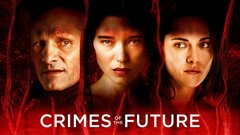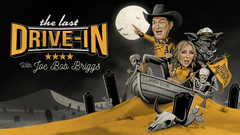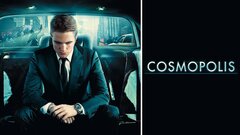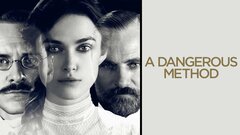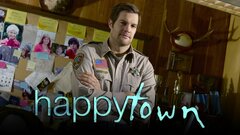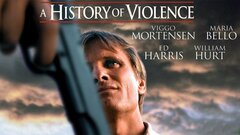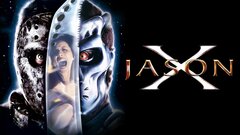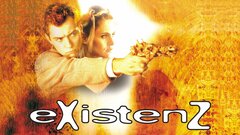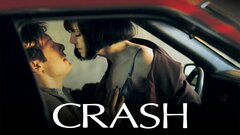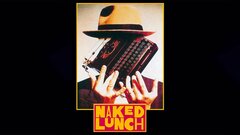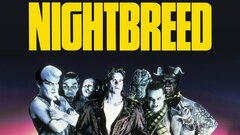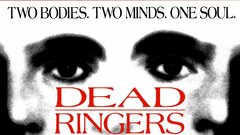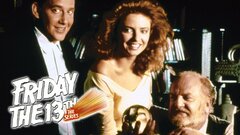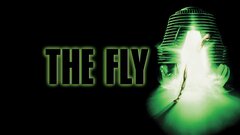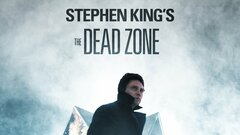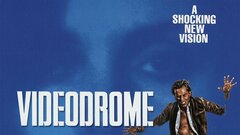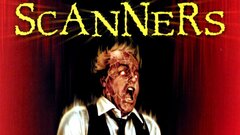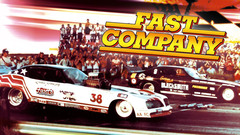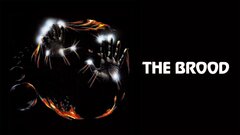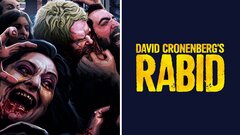Hailed as one of the most original and sophisticated horror filmmakers that came to prominence during the 1970s, David Cronenberg transcended the limitations of his somewhat disreputable genre to become one of the most respected directors of his generation. Cronenberg first gained notice for audacious sci-fi horror thrillers like "Shivers" (1975), "The Brood" (1979) and "Scanners" (1981), before scoring critical and commercial hits with "The Dead Zone" (1983) and his remake of "The Fly" (1986), starring Jeff Goldblum.
Following the critically lauded "Dead Ringers" (1988), Cronenberg began branching out beyond horror to direct the adaptation of William S. Burrough's "Naked Lunch" (1991) and courted a great deal of controversy for "Crash" (1996), which focused on a group of people who derived sexual pleasure from car crashes. After years of earning a reputation - perhaps unfairly - as an exploitation director, Cronenberg gained wider respect for his Academy Award-winning thriller "A History of Violence" (2005) and his excellent crime drama, "Eastern Promises" (2007), both of which starred favored actor Viggo Mortensen. Having gone through many permutations throughout his career, Cronenberg attained the status of being one of the most intelligent and interesting contemporary auteurs working in English language films.
Born on March 15, 1943 in Toronto, Ontario, Cronenberg had initial intentions of becoming a novelist, thanks in large part to reading William Burroughs and Vladimir Nabokov in his father's literary magazines. In 1963, he was enrolled at the University of Toronto, where he took science courses, believing that writing was a skill unable to be taught. Eventually, however, Cronenberg made the switch to English after hanging around with the artistic crowd. After receiving exceedingly high marks at university, Cronenberg spent a year traveling Europe - mainly Denmark because of his affinity for all things Nordic. Upon return, he returned and enrolled in a master's program, where a friend impressed him with a short film called "Winter Keep Us Warm," a title taken from T.S. Eliot's The Wasteland. With $300 of his own money, Cronenberg directed his first short, "Transfer," about a man obsessed with his psychiatrist. His next short, "From the Drain," displayed what later became his signature high-minded absurdity, with two men discussing war while fully clothed in a bathtub.
Still attending university, Cronenberg made two experimental science fiction features: "Stereo" (1969) and "Crimes of the Future" (1970), both of which demonstrated his penchant for stylistic and thematic quirkiness, as well as a flair for utilizing architectural space for expressive purposes. The stomach-churning shocker "The Parasite Murders" (1975) (subsequently retitled "Shivers" in English Canada and Great Britain, "They Came From Within" in the U.S., and "Frissons" in the French version prepared for Quebec and France), co-produced by fellow Canadian Ivan Reitman, marked his entry to the commercial marketplace. In its depiction of an artificially created parasite that releases uncontrollable sexual desire in the residents of an antiseptic luxury apartment complex, Cronenberg fashioned a wry commentary on the sexual liberation of the times.
Playing on the same theme, "Rabid" (1977) cleverly cast Marilyn Chambers, former Ivory Snow Girl and porn star, as the unfortunate victim of an operation that leaves her with a vampiric appetite for blood and a murderous phallic spike protruding from her armpit. Inspired by the painful breakup of his first marriage, Cronenberg wrote and directed "The Brood" (1979), a more ambitious exercise in biological horror that revealed the filmmaker reaching for some measure of respectability. With his biggest budget up to that point ($1.4 million), he was finally able to afford established actors with international reputations, including Oliver Reed and Samantha Eggar. Placing his players within a gruesome tale in which biological mutation is a metaphor for emotional rage, he handled them with surprising skill. He demonstrated a similar sense of directorial assuredness with "Scanners" (1981), a sci-fi conspiracy thriller involving an underground community of telepaths. Though the screenplay showed signs of being rewritten on the run, Cronenberg's filmmaking savvy and special effects made up for its deficiencies, with the exploding head of one particular "scanner" at a press conference by "scanner renegade" Darryl Revok (Michael Ironside) being one of horror film's most iconic images.
His next film, "Videodrome" (1983), was a self-reflexive, McLuhanesque nightmare about the effects of television on its viewers. The film tells the story of an opportunistic TV producer (James Woods) who grows obsessed with a sadistic-erotic program emanating from a mysterious pirate station. His fantasies stimulated by the show, he soon grows increasingly out of control and seems to represent the consciousness of the typical male TV viewer shaped by violence, sex and spectacle. "Videodrome" was a tour de force where fantasy merged with reality to the point where the viewer, like the protagonist, cannot separate the two, driving home the idea that we have been "programmed" by the media - a theme strikingly visualized by the image of a newly evolved orifice in the producer's stomach for receiving video software.
For his next film, "The Dead Zone" (1983), Cronenberg truly rose above the level of horror exploitation. Adapted from a Stephen King novel about a man able to predict future events in people's lives simply by touching them, atmosphere and acting - especially a fine central performance by Christopher Walken - took precedence over special effects.
Cronenberg struggled for the critical recognition his work deserved, largely because of the nature of his material. Early response in his native Canada ranged from MPs in Parliament railing about government funding for a "disgusting" movie like "Shivers," to critic Robert Fulford's review entitled "You Should Know How Bad This Film Is. After All, You Paid For It." Robin Wood's influential 1979 essay "An Introduction to the American Horror Film," which set the terms for serious discussion of the genre in the 1980s, identified Cronenberg as a prime example of the horror film's "Reactionary Wing."
Many subsequently followed Wood in viewing Cronenberg's work as motivated by sexual disgust. Cronenberg's 1986 remake of "The Fly" seemingly endorsed such a view. The hero, a scientist whose atomic structure commingles with the genes of a housefly, undergoes a gradual physical disintegration that has been read as a metaphor for AIDS. Nonetheless, in marked contrast to the director's customary detached and clinical tone, "The Fly" was a very emotionally affecting work. Beginning as a gently playful romance laced with ominous intimations of the horrors to come, the film eventually escalated to the level of a full scale human tragedy. Cronenberg elicited a profoundly moving performance from Jeff Goldblum that was central to its success.
Cronenberg's somber and deliberately paced follow-up, "Dead Ringers" (1988), a resounding critical and commercial success, seemed to refute the persistent sexual disgust interpretation. In this impressively accomplished work, Cronenberg's biological horror was almost entirely submerged within the psychological exploration of character and the director's precise command of color, decor and camera movement. A bravura performance by Jeremy Irons makes this grisly story of twin gynecologists who descend into drugs, madness and finally death, a chilling examination of masculine sexual dread and a powerful critique of the patriarchal control of the medical profession. In retrospect, much of Cronenberg's earlier work could be seen as an ironic critique of the fears and repression that have informed our apparently liberated society, rather than merely a visualization of the director's personal obsessions.
Cronenberg turned to a legendary literary source and an early inspiration for his next feature, "Naked Lunch" (1991). Realizing that a faithful adaptation of William S Burroughs' hallucinatory novel would be impossible, he utilized elements of the author's own storied life to craft a meditation on the writing of the novel and its shaping of the writer. Easily Cronenberg's greatest critical success to date, "Naked Lunch" garnered awards from several major critics' associations (mostly for its screenplay), 11 Canadian Genie awards (including Best Picture, Best Adapted Screenplay and Best Editing) and placement on many "Best of" lists.
Cronenberg's surprisingly subdued direction of "M. Butterfly" (1993), David Henry Hwang's adaptation of his hit Broadway show that confronted issues of identity, gender roles, and ethnic stereotyping, met with mixed and disappointed reviews. Still, the filmmaker's move from grindhouse to art house was complete.
Cronenberg again chose seemingly unwatchable material - this time, J.G. Ballard's 1973 novel - for "Crash" (1996), creating his most disturbing, sexually explicit and controversy-provoking film yet. "Crash" presented a psychological futurescape populated by characters who, having lost the ability to connect on an emotional level, engage in fetishistic sex involving car crashes. Howls of protest decried his take on the depersonalizing modern world as pornographic and nihilistic; Ted Turner stalled its release in the U.S. until March 1997, while "Crash" narrowly avoided censorship for its June 1997 opening in England. But the film was honored as a modern masterpiece with the 1996 Cannes Special Jury Prize ("for daring and originality"). The director viewed the characters' desperate quest for feeling, despite their dangerous flirtation with death, as very human and ultimately life-affirming.
Cronenberg's "eXistenZ" (1999), his first original screenplay since "Videodrome," picked up right where that film left off: the orifice in the stomach that received video software was instead replaced by a "bioport" at the base of a person's spine to interphase with a virtual reality game. Inspired by the Fatwa against Salman Rushdie - and perhaps a little by the furor over "Crash" - the picture presented a futuristic world where game playing rules and its creators are society's superstars. Allegra (Jennifer Jason Leigh), whose "eXistenZ" effectively erases the boundaries between fantasy and reality, finds a $5 million Fatwa on her head and embarks with security man Jude Law on a synaptic road movie into the very heart of her game where nothing is as it seems. Once again addressing the consequences of radical bio-technology, Cronenberg imagined a Game Pod that was an organic creature grown from fertilized amphibian eggs stuffed with synthetic DNA - in its way, analogous to actual ongoing experimentation with animal proteins to replace metals as the basis of computer chips.
Cronenberg veered into another experimental storytelling mode with his next film, "Spider" (2002), an adaptation of modern Gothic author Patrick McGrath's early novel. The director told the story of Spider Cleg (Ralph Fiennes), a released mental patient who is plagued by nightmarish recollections of his past filtered through his schizophrenia and unable to tell the difference between memory, nightmare, experience and fantasy. Cronenberg made bold choices with the film, including telling the story entirely from the subjective and utterly unreliable perspective of Spider, and casting Miranda Richardson in virtually all of the significant female roles to illustrate how largely Spider's mother looms in his mind. Many critics admired Cronenberg's efforts and Fiennes' unconventional performance, but felt trapped in Spider's claustrophobic world, as exemplified by Roger Ebert's assessment: "The story has no entry or exit, and is cold, sad and hopeless. Afterward, I feel more admiration than gratitude."
The director's next film was a significant departure from his usual fare, though not without instances of bloody violence and a macabre sense of humor. But it may well have been his greatest cinematic achievement and a complex, compelling expression of Cronenberg's Darwinian, survival-of-the-fittest ethos. "A History of Violence" (2005), adapted from John Wagner and Vince Locke's 1997 graphic novel, tells the story of Tom Stall (Viggo Mortensen), a loving, rock-solid husband and father in small town Indiana who gains notoriety as a hero when he skillfully foils a violent robbery attempt in his diner. His actions, however, draw the attention of menacing and shadowy figures who claim to recognize Stall from a heretofore unknown dangerous and bloody past. Aided by a stellar cast that included Mortensen, Maria Bello, Ed Harris and William Hurt, Cronenberg skillfully explored questions of identity and the lengths a man will go to both safeguard his family as well as his secrets. The end result was a mixture of psychological character and drama and old fashioned pulp storytelling, easily on par with Hitchcock at his best, as the director found himself atop many lists as a potential contender in that year's awards derby.
Perhaps mellowing with age like a fine wine or simply willing to explore new genres, Cronenberg delved into standard crime thriller territory with "Eastern Promises" (2007), the story of a London-based midwife (Naomi Watts) who investigates the past of a Russian prostitute after she dies in childbirth, only to stumble into a police operation trying to expose a major prostitution ring ran by an Eastern European crime family. "Eastern Promises" also starred Mortensen, Cronenberg's new favored actor, who played the smooth henchman of a crime boss (Armin Mueller-Stahl) tasked with making sure the nurse does not reveal secrets inadvertently learned about the family. He soon finds, however, that his loyalties have divided once he realizes that the lies told on all sides might lead to violent retribution. After earning acclaim across the international festival circuit, his film received numerous award nominations, including a Best Picture nod at the Golden Globes.
Cronenberg followed with "A Dangerous Method" (2011), an examination of the turbulent relationship between Sigmund Freud (Mortensen) and Carl Jung (Michael Fassbender), and the patient (Keira Knightley) who comes between them. He next directed Robert Pattinson in "Cosmopolis" (2012), an adaptation of Don DeLillo's dense novel that depicted the "Twilight" star as a soulless billionaire who goes down a path of self-destruction while trying to traverse Manhattan in his limousine. Despite Pattinson's huge fan following, care of the "Twilight" franchise, the film was dead on arrival and reviewed as just too odd for the average viewer. Unbowed, the pair reunited for Cronenberg's next film, the Hollywood-based thriller "Maps to the Stars" (2014), also starring Julianne Moore and John Cusack.





